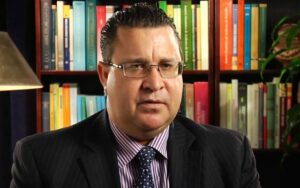World Bank reiterates commitment in supporting Ghana’s public enterprises reform

Mr Pierre Laporte, World Bank Country Director in Ghana, has reiterated the Bank’s support to the reform agenda of Ghana’s public enterprises.
He said the Bank was currently in discussions with relevant stakeholders for a potential programme-for-results to be submitted for approval next year, adding that the programme, among many other important Public Financial Management (PFM) issues, aimed at supporting the State-Owned Enterprises (SOEs) sector.
Mr Laporte said this on Monday at the signing ceremony of the 2021 Performance Contract signing between the State Interests and Governance Authority (SIGA) and 71 State-Owned Enterprises (SOEs), Joint Venture Capitals (JVCs) and other state entities in Accra.
President Nana Addo Dankwa Akufo-Addo was the special guest of honour at the event.
Mr Laporte said: “We are exploring different activities to be taken and expect key results in areas such as SOE performance evaluation reports, State Ownership Reports, and control on net transfers to SOEs.”
He said the World Bank was also preparing another programme-for-results in the energy sector whose key focus areas include improvement of Electricity Company of Ghana (ECG) performance and corporate governance.
“Given the high contribution of the energy sector to the Ghanaian economy, this is expected to serve as a catalyst for improving financial conditions in the SOEs sector.”
He said the COVID-19 pandemic had changed lives, saying “it has been affecting billions of people across the world for the last year and a half”
Mr Laporte said, he had the utmost respect for the leaders and employees of SOEs which had managed to and continue to successfully deliver critical services in key economic sectors in the Ghanaian economy such as energy, transport, and health during “these difficult times”.
He noted that without them, the battle against the virus would had been more difficult.
“The pandemic has also left a scar on the fiscal situation in Ghana. Growth slowed to 0.4 percent in 2020 and public debt rose to 79 percent of GDP,” Mr Laporte said.
“While Ghana has been outstanding in containing the pandemic and supporting the economy, and an economic recovery is underway, there are fiscal challenges ahead of us.”
He said he was pleased to see that in the 2021 budget, the Government had made a commitment to gradual medium-term fiscal adjustment that would see a decline in public debt starting in 2024.
He said under such circumstances, performances of SOEs need to be enhanced now more than ever to stop the need for the government’s regular interventions and financial support, and in turn protect the government’s ownership interests.
Mr Laporte welcomed the preparation of the State Ownership Policy which highlighted the Government’s commitment to achieving public policy objectives and goals while acknowledging the profitability requirement as fundamental.
He intimated that SIGA, since its establishment had been a key institution in overseeing the State’s interests in specified entities, and ensuring shareholder value, financial sustainability, and good corporate governance.
“The World Bank is very honoured to be part of that important process through the Economic Management Strengthening Project (GEMS).”
Mr Laporte said the Project allocated $5.25 million for improving the governance of SOEs, through which the establishment of SIGA was supported.
He said in addition to the establishment of SIGA, the Project had supported the consolidation of the state’s ownership role through an equity study and was supporting the corporate governance improvements.
He lauded the Government and SIGA, in particular, for recognizing the World Bank as an important partner in the endeavour to streamline the operations of public enterprises and ensure efficient delivery on their mandates.
Mr Laporte said, he looked forward to future engagements with the Government in assisting the SOEs sector which was vital to the Ghanaian economy.
Mr Joseph Cudjoe, Minister of Public Enterprises, said there was the need to put in place a Legislative Instrument (LI) for the operationalisation of the SIGA Act.
Mr Stephen Asamoah-Boateng, Director-General, SIGA, said efforts to actualise the SIGA Act had not been very smooth however, from last year, a lot had been achieved, especially judging by the number of state entities now taking part in the performance contract signing agreement.
He said most of the sector ministers had been very supportive and that a total of 71 state entities took part in the 2021 performance contract signing.
Source: GNA
